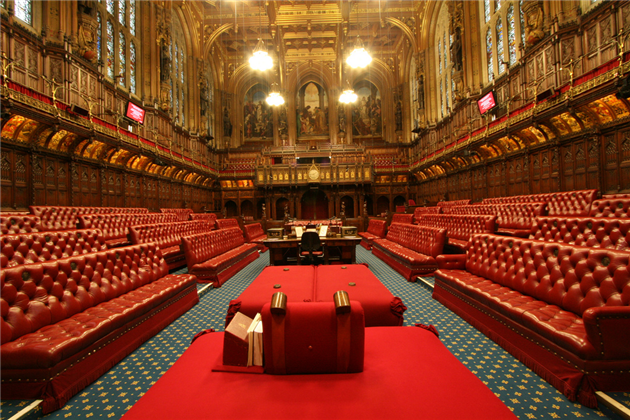House of Lords - time for Legislative Service?

I've mulled the idea of having an upper chamber randomly selected from the public like jury service for some time, often over a pint with a friend who prefers to remain nameless. This friend wrote an outstanding letter to Mark Harper which is included below by his kind permission.
Mark Harper didn't manage more than a stock response, and neither did Matthew Offord and so it doesn't seem that the British Government is taking up the concept any time soon. We talked about the e-petition system but it turns out that it's limited to 1,000 characters and submissions are vetted for duplicates. There is an existing e-petition with this idea written by Simon Ferrigno which I've voted for, and if you support the legislative service idea please do the same.
Dear Mr Harper
We understand that you are working with the Deputy Prime Minister on the matter of an elected second chamber. We’re sure that many proposals and reports have crossed your desk on this topic. We’d like to share something we came up with when the issue was initially raised a few years ago. Having kept abreast of developments via media reports, we were both surprised not to hear anything similar mooted.
Our suggestion is that the second chamber be made up of ordinary members of the public drawn from across the country, randomly selected from the electoral roll, typically for up to 2 weeks of service. The system would be administered in a similar way to jury duty, albeit on a national basis. These people would be brought together, put up in decent accommodation, well fed, and otherwise made to feel as if their presence and contribution is both valued and important. They will be tutored, in an unbiased fashion, on the background of the Bill under their consideration. The syllabus could be defined by the civil servants who draw up the legislation under consideration. At this point, a multiple choice test on what they have been taught will be administered, but the results will not be revealed.
After the test, they will have the specifics of the Bill explained to them by two barristers (selected by parties for and against). The barristers will have the ability to bring in subject matter experts (perhaps drawing on the talent pool currently in place in the HOL). At the end of the evidentiary stage, the “constitutional jury” will have the opportunity to debate the issues and pose any further questions they may have to the barristers or witnesses.
Once completed, the constitutional jury will vote on the matter(s) at hand. The only votes that will actually count are those cast by people who passed the multiple choice test (as long as a quorum is reached). The results will only be reported as percentages. No one will ever be told if their vote counted, and all members of the constitutional jury are recorded as having served in deciding the matter.
Among the numerous advantages, as we see them, are:
- Politicians are often heard bemoaning the lack of public engagement with politics. This is an ideal way of re-engaging ordinary members of the public with the business of politics and what happens in Parliament.
- The primacy of the House of Commons will be ensured due to the transience of the members of the second chamber.
- There are no expensive elections to be paid for, nor will anyone’s voting record need to be skewed to ensure their re-election.
- As this chamber will be entirely made up of randomly selected members of the public, there can be no claims of cronyism.
- Voting along party political lines may be reduced; hence the decisions made are those that a random cross section of society deem to be right, rather than the whips.
- As the names of the constitutional jury are not disclosed until after the final voting, lobbying by vested interests will be reduced.
- The second chamber does not necessarily need to be based in London. In fact, there is no reason why it cannot become a travelling roadshow, convening on a rotating basis in major towns and cities around the UK. This may go some way towards quietening some of the accusations that Parliament is London-centric and lessening talk about the Westminster Village.
- Should Parliamentary time be short and the workload high, multiple constitutional juries can be assembled (perhaps in different locations), to work in parallel considering different Bills.
We realise that some members of the House of Lords serve on multiple select committees. We’ll admit to not having a plan for how these will be staffed in the future. One could assume that for now, they can be appointed by Parliament continuing to draw on the talent pool from the current HOL and augmenting any vacancies with new appointments proposed by a committee of civil servants.
We realise that all parties are currently wedded to the idea of an elected second chamber. Is there any way that this could work as a viable alternative?
Yours sincerely...
Photo credit: UK Parliament cc
Related Posts
- Legislative Service
- Is Sortition Having a Random Moment?
- Lottocracy vs Legislative Service
- Open Democracy
- Go-arounds: LEGO and Legislative Service
(Published to the Fediverse as: House of Lords - time for Legislative Service? #politics #politicalreform #legislativeservice #democracy Legislative Service is the right answer to reforming the House of Lords. )

Add Comment
All comments are moderated. Your email address is used to display a Gravatar and optionally for notification of new comments and to sign up for the newsletter.